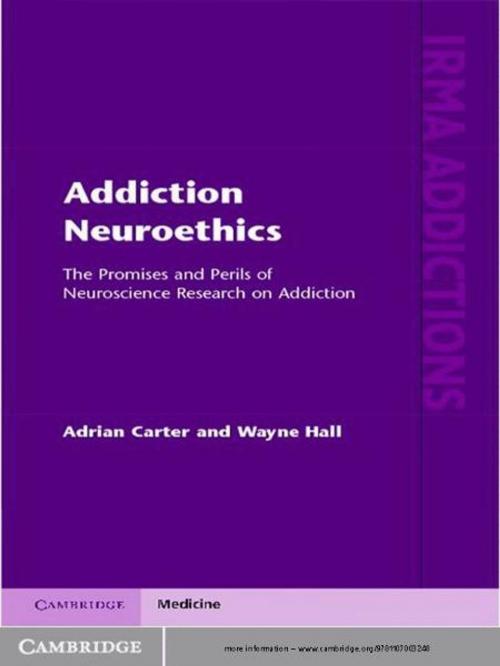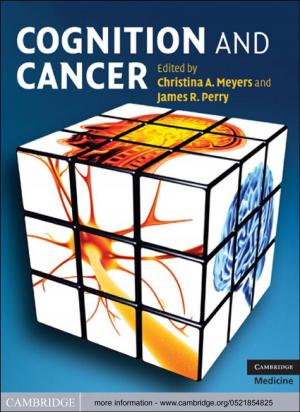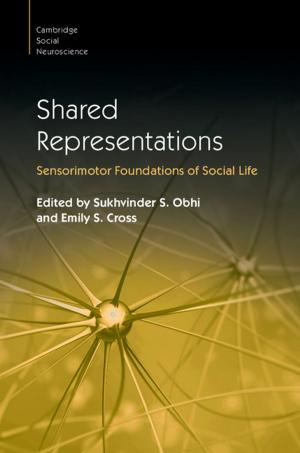Addiction Neuroethics
The Promises and Perils of Neuroscience Research on Addiction
Nonfiction, Health & Well Being, Medical, Specialties, Psychiatry, Ailments & Diseases, Mental Health| Author: | Adrian Carter, Wayne Hall | ISBN: | 9781139179690 |
| Publisher: | Cambridge University Press | Publication: | November 17, 2011 |
| Imprint: | Cambridge University Press | Language: | English |
| Author: | Adrian Carter, Wayne Hall |
| ISBN: | 9781139179690 |
| Publisher: | Cambridge University Press |
| Publication: | November 17, 2011 |
| Imprint: | Cambridge University Press |
| Language: | English |
Addiction is a significant health and social problem and one of the largest preventable causes of disease globally. Neuroscience promises to revolutionise our ability to treat addiction, lead to recognition of addiction as a 'real' disorder in need of medical treatment and thereby reduce stigma and discrimination. However, neuroscience raises numerous social and ethical challenges: • If addicted individuals are suffering from a brain disease that drives them to drug use, should we mandate treatment? • Does addiction impair an individual's ability to consent to research or treatment? • How will neuroscience affect social policies towards drug use? Addiction Neuroethics addresses these challenges by examining ethical implications of emerging neurobiological treatments, including: novel psychopharmacology, neurosurgery, drug vaccines to prevent relapse, and genetic screening to identify individuals who are vulnerable to addiction. Essential reading for academics, clinicians, researchers and policy-makers in the fields of addiction, mental health and public policy.
Addiction is a significant health and social problem and one of the largest preventable causes of disease globally. Neuroscience promises to revolutionise our ability to treat addiction, lead to recognition of addiction as a 'real' disorder in need of medical treatment and thereby reduce stigma and discrimination. However, neuroscience raises numerous social and ethical challenges: • If addicted individuals are suffering from a brain disease that drives them to drug use, should we mandate treatment? • Does addiction impair an individual's ability to consent to research or treatment? • How will neuroscience affect social policies towards drug use? Addiction Neuroethics addresses these challenges by examining ethical implications of emerging neurobiological treatments, including: novel psychopharmacology, neurosurgery, drug vaccines to prevent relapse, and genetic screening to identify individuals who are vulnerable to addiction. Essential reading for academics, clinicians, researchers and policy-makers in the fields of addiction, mental health and public policy.















